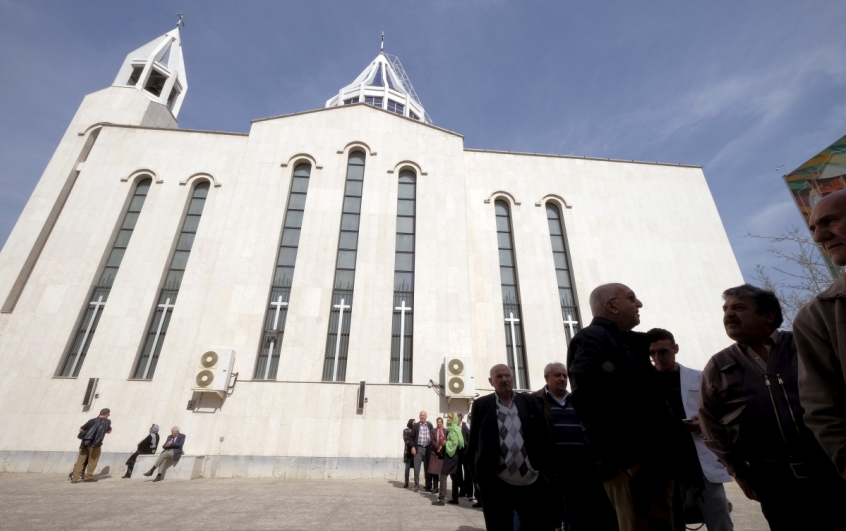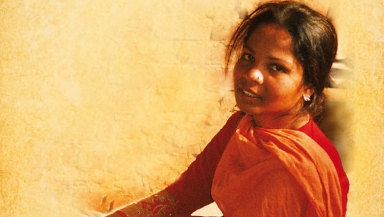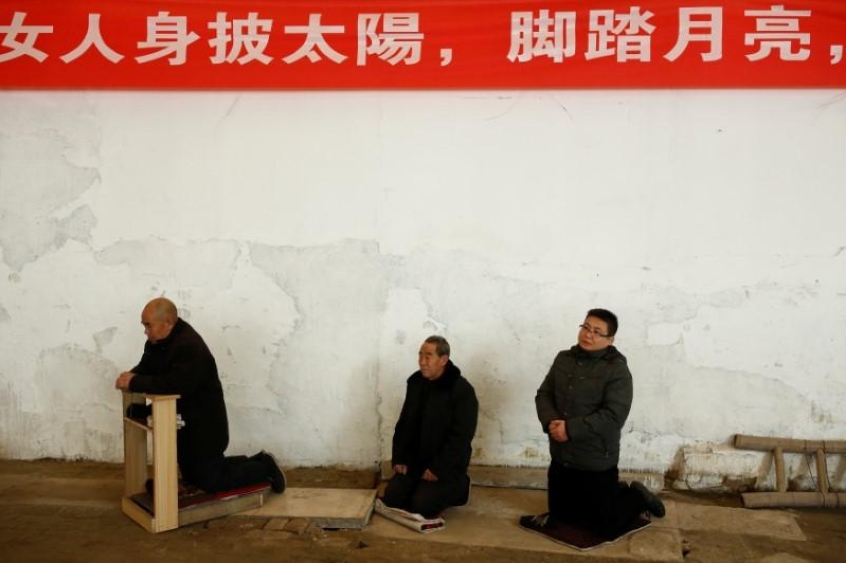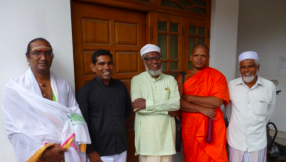
The US State Department's annual religious freedom report has warned of a "chilling array" of abuses against people of faith worldwide. Countries singled out for criticism in the report included China, Iran and Burma.
Launching the report, Secretary of State Mike Pompeo told reporters that 2018 was "far from perfect" and that the US would work to hold countries with poor track records on religious liberty to account.
"As in previous years, our report exposes a chilling array of abuses committed by oppressive regimes, violent extremist groups, and individual citizens," he said.
"For all those who run roughshod over religious freedom, I'll just say this: the United States is watching and you will be held to account."
He added: "History will not be silent about these abuses. But only if voices of liberty like ours record it."
The religious liberty report is issued each year by the State Department's Office of International Religious Freedom, overseen by Ambassador-at-large for International Religious Freedom Sam Brownback.
Mr Pompeo said there had been some positive steps in Uzbekistan, which this year has dropped off the US State Department's list of 'countries of particular concern', or CPCs.
"For the first time in 13 years, [Uzbekistan] is no longer designated a CPC," Pompeo said.
Explaining the decision, he said: "This past year, the government released a religious freedom roadmap. Fifteen-hundred religious prisoners have been freed and 16,000 people that were blacklisted for their religious affiliation are now allowed to travel."
Mr Pompeo said there were also signs of improvement in Pakistan, which was on the CPC list last year.

He noted the 2018 acquittal and release of Asia Bibi, a Christian mother who spent years on death row for blasphemy charges.
However, with dozens of others still in prison on similar charges, Mr Brownback said more work needed to be done on improving religious freedom in the country.
"We hope to get into some key negotiations with Pakistan that will move them forward on protecting their religious minorities," he said.
"We have a keen eye focus on them to help them get off [the CPC list]. But they are going to have to take action themselves."
Mr Brownback was scathing about Iran, saying that it "continues to show a blatant disregard for protecting individuals' religious freedom".
"Iranian religious minorities including Bahaiis, Christians, Jews, Zoarastains, Sunni and Sufi Muslims faced discrimination, harassment, and unjust imprisonment because of their beliefs," he said.
"Their religious books are banned. They are denied access to education and their cemeteries are desecrated."
Turning his attention to China, where Christians have faced arrest and church closures, he accused the country of waging a "war on faith".
"To this, we say to China, you will not win your war on faith," he said. "This will have consequences on your standing at home and around the world."

He strongly criticised China's detention camps, where it is feared up to two million Uighur Muslims, ethnic Kazakhs, and other Muslims are being held in Xinjiang province.
Mr Brownback said the camps were "designed to strip away the culture, identity, and faith of these religious communities".
He said that reports of forcible organ harvesting from prisoners of conscience, including members of the Fulan Gong, Uighurs, Tibetan Buddhists, and underground Christians "should shock everyone's consciences".
In Burma, where hundreds of thousands of Rohingya Muslims have been displaced, he said an international effort was needed to resolve the situation.
"We haven't seen positive action," he said.
"We do support what the UN is doing in Burma in dealing with the Rohingya. The world community has to continue to take note of this and see what it is going to take to get something positive in place."
Foreign Secretary 'deeply disturbed' by number of Christians being persecuted for their faith
Blasphemy in Pakistan: a cause of suffering for so many Christians
Rohingya crisis: There's no plan and not enough money, says Christian Aid













